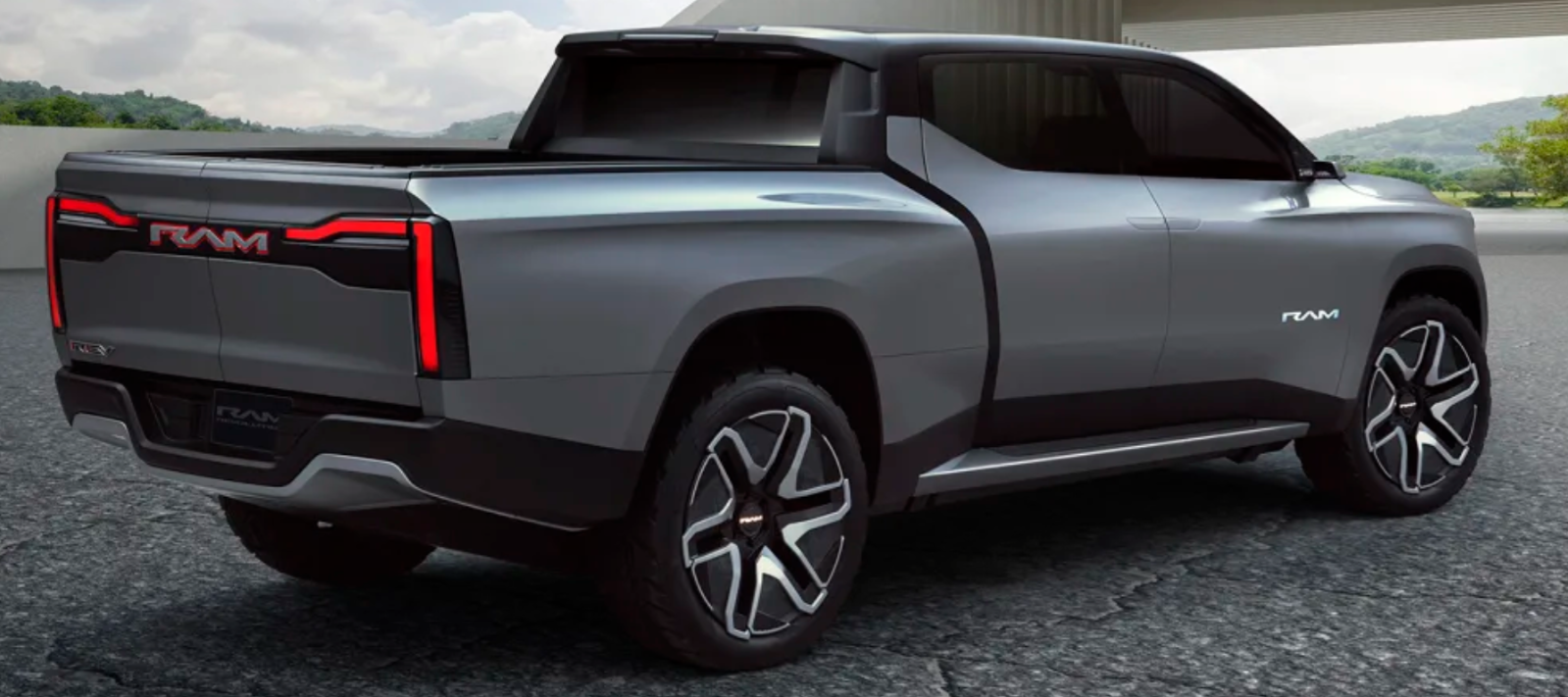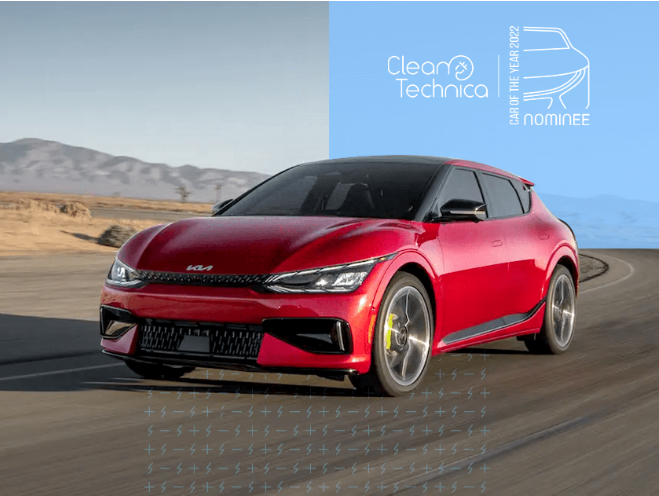
In an effort to clear up confusion about the new federal tax credit for electric cars, the IRS has issued new guidelines for taxpayers.
People have a lot of questions about the new EV federal tax credit created by the Inflation Reduction Act. It’s little wonder. The rules are complex, which is quite the opposite of what we might expect from a program designed to increase sales. Confused people usually don’t buy stuff until they get the answers they need to make a rational decision.
In an attempt to clarify things, the IRS has released an FAQ document that attempts to answer the most common questions people have. We can’t fault the IRS. Congress handed then a hot potato and they are doing their best to cope. Still, when you read through the FAQ page, you may feel the need to hire an accountant or an attorney — or both — to help you understand the new rules and regulations.
Which Cars Qualify For The EV Federal Tax Credit?
The basic rules are pretty clear. As of January 1, 2023, if the final assembly of a new electric car does not take place in North America, that’s the end of the story. If it passes that test, it must weigh less than 14,000 pounds, be powered “to a significant extent” by an electric motor, and have at least a 7 kWh battery. So far, so good. A list of all cars that currently qualify is available on the IRS website. The list will be updated and amended as more qualifying models are added.
Here are more resources to help you out. If you have a question about where the final assembly of a particular vehicle took place, that information can be found on the Department of Energy’s Alternative Fuels Data Center website. It is also available on the NHTSA VIN Decoder website.
Bear in mind that the federal tax credit is non-refundable. Any portion not used for the tax year in which the car was first purchased is lost and cannot be carried over to subsequent tax years. If you need more information, you should seek advice from a qualified tax expert. We do know that you will need to file Form 8936 with your tax return. And don’t forget that there are limits on the sales price of an electric car ($55,000 for sedans and wagons, $80,000 for SUVs and light trucks) and the maximum income of the purchaser ($75,000 single, $112,500 head of household, $150,000 married).
New Tax Credit Rules Coming In March
Much of the confusion is being caused because the IRS was unable to get the rules and regulations pertaining to battery materials and components completed by the end of last year. Want to know what’s going on with that? Here is the official word straight from the IRS:
“The critical mineral and battery component requirements under § 30D(e) will apply for vehicles placed in service after proposed guidance on these requirements is issued. The publication of these FAQs is not the issuance of proposed guidance with respect to the critical mineral and battery component requirements under § 30D(e) and does not trigger the applicability of those requirements. The Treasury Department and the IRS will explicitly identify when they have issued proposed guidance with respect to the critical mineral and battery component requirements under § 30D(e). However, vehicles ordered or purchased prior to but placed in service after Treasury and the IRS issue this proposed guidance will be subject to the critical mineral and battery component requirements. This proposed guidance is expected to be issued in March 2023.”
What About Used Cars?
This part should be simple. Buy a used EV and get a $4000 federal tax credit. Simple, huh? Not really. The car must be at least two model years old at the time of purchase, be powered “to a significant extent” by an electric motor, have a battery of at least 7 kWh, and weigh less than 14,000 pounds. The sale price must be less than $25,000, and there are the same income limits on the buyer as there are for new cars. The IRS has a helpful list of cars that qualify for the used car credit.
The buyer must not “flip” the car after purchase, and only one tax credit is allowed for any particular vehicle. The buyer cannot have claimed another used car tax credit during the prior three years. Only individuals are eligible — no corporations, trusts, LLCs, partnerships, other business entities, or non-profit organizations. Finally, the car must be purchased from a licensed dealer.
The buyer must file the same Form 8936 when filing a tax return, and the dealer is obligated to provide the buyer with a written statement attesting to the VIN and other details necessary to identify the car as an eligible vehicle for the tax credit at the time of purchase. Heads up, people — according to the IRS, “The previously-owned clean vehicle credit may only be used by a taxpayer to the extent the taxpayer has a reported tax due. The credit cannot be carried forward and the excess is not refundable.”
What’s Up With Leases?
Whoa, hold on tight, people, because we are about to plunge down the rabbit hole of government regulation — or bottomless pit, if you prefer. You may be aware that the Germans, the French, the Japanese, and the Koreans are mighty unhappy about the IRA and its America-centric provisions. Hyundai and Kia are especially steamed up since they are in the process of building new US factories to manufacture electric cars but they won’t be ready for a few years. In the meantime, they will be frozen out of the federal tax credit.
There are rumors the US government may attempt to level the playing field by using a loophole baked into the IRA that exempts leased cars from all the silly rules that apply to cars that are purchased outright — maybe. Here’s what the IRS has to say on this subject. We would try to summarize the applicable rules, but that would not make it clear how arcane they are. Read them for yourself and then you decide what they mean.
A1. A taxpayer can claim a qualified commercial clean vehicles credit for purchasing and placing in service in the taxpayer’s business a “qualified commercial clean vehicle” during the taxable year. The taxpayer must use the vehicle for a “business use.”
A2. A “qualified commercial clean vehicle” is defined as any vehicle of a character subject to the allowance for depreciation that:
Okay, we made it this far. Now buckle up. Here’s where things get really strange.
A5. Whether a taxpayer can claim the qualified commercial clean vehicle credit in its business depends on who is the owner of the vehicle for federal income tax purposes. The owner of the vehicle is determined based on whether the lease is respected as a lease or recharacterized as a sale for federal income tax purposes.
A6. Based on longstanding tax principles, the determination whether a transaction constitutes a sale or a lease of a vehicle for tax purposes is a question of fact. Features of a vehicle lease agreement that would make it more likely to be recharacterized as a sale of the vehicle for tax purposes include, but are not limited to:
A7. In the event the clean vehicle lease is recharacterized as a sale, the lessee would need to determine if they are eligible to claim either a clean vehicle credit or a qualified commercial vehicle credit. The lessor would not be eligible to claim either credit because they would have engaged in a resale of the vehicle.
A8. In general, property is subject to the allowance for depreciation if it is used in a trade or business of the taxpayer or for the production of income (business use).
The Takeaway

Got all that? Good. Do you know what it means? It means there will be some very busy years ahead for lawyers, accountants, and lobbyists. The regulations basically say a leased vehicle is eligible for the full tax credit if the IRS says it is. Right now, it appears a leasing company can buy an electric car, lease it to an individual, and avoid most if not all those annoying place of final assembly and sourcing rules for battery materials and components.
In theory, a Kia EV6 that is eligible for no tax incentive if someone buys it outright is eligible for the full credit if it is leased. Joe Manchin is pretty steamed up about that situation, but there seems little he can do about it now. If the IRS issues new regulations that clarify the leasing provisions, we will be sure to let you know.